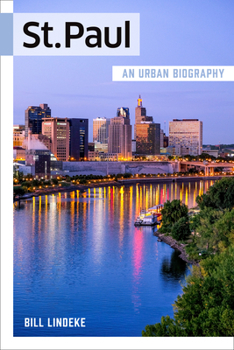St. Paul: An Urban Biography
Select Format
Select Condition 
Book Overview
A concise history, featuring stories that are familiar, surprising, and sure to change the way you see Minnesota's capitol city.
How did the city of St. Paul come to be where and what it is, and what does that show us about the city today? In eight place-based chapters, Bill Lindeke provides intriguing insights and helpful answers. He tells the stories of the Dakota village forced to move across the Mississippi by a treaty--and why whiskey sellers took over the site; the new community's close ties to Fort Snelling and Winnipeg; the steamboats and railroads that created a booming city; the German immigrants who outnumbered the Irish but kept a low profile when the US went to war; the laborers who built the domes over the state capitol and the Cathedral of St. Paul; the gangsters and bootleggers who found refuge in the city; the strong neighborhoods, shaped by streets built on footpaths and wagon roads--until freeway construction changed so much; and the Hmong, Mexican, East African, and Karen immigrants who continue to build the city's strong traditions of small businesses. This thoughtful investigation of place helps readers to understand the city's hidden stories, surrounding its residents in plain sight.Format:Paperback
Language:English
ISBN:1681342006
ISBN13:9781681342009
Release Date:July 2021
Publisher:Minnesota Historical Society Press
Length:188 Pages
Weight:0.74 lbs.
Dimensions:0.8" x 6.0" x 8.9"
Customer Reviews
0 rating





